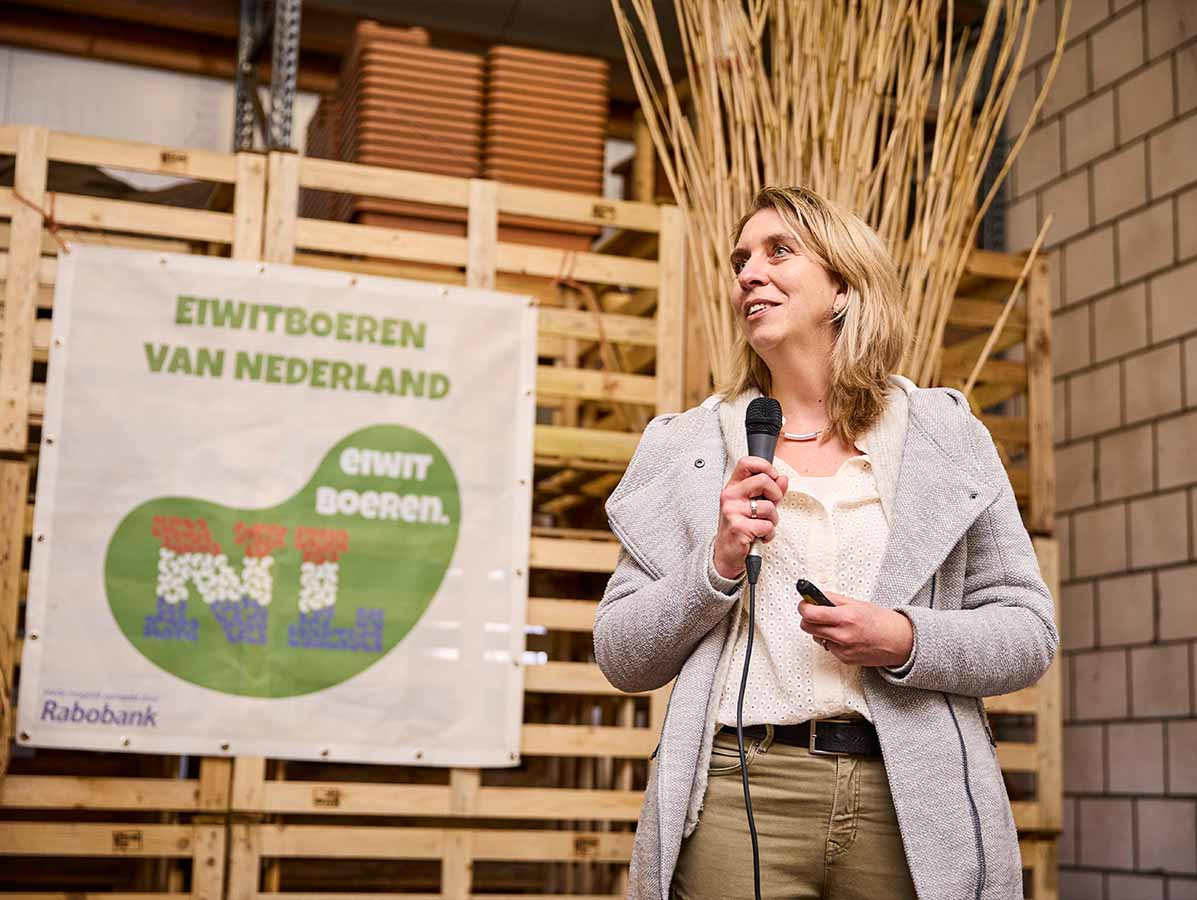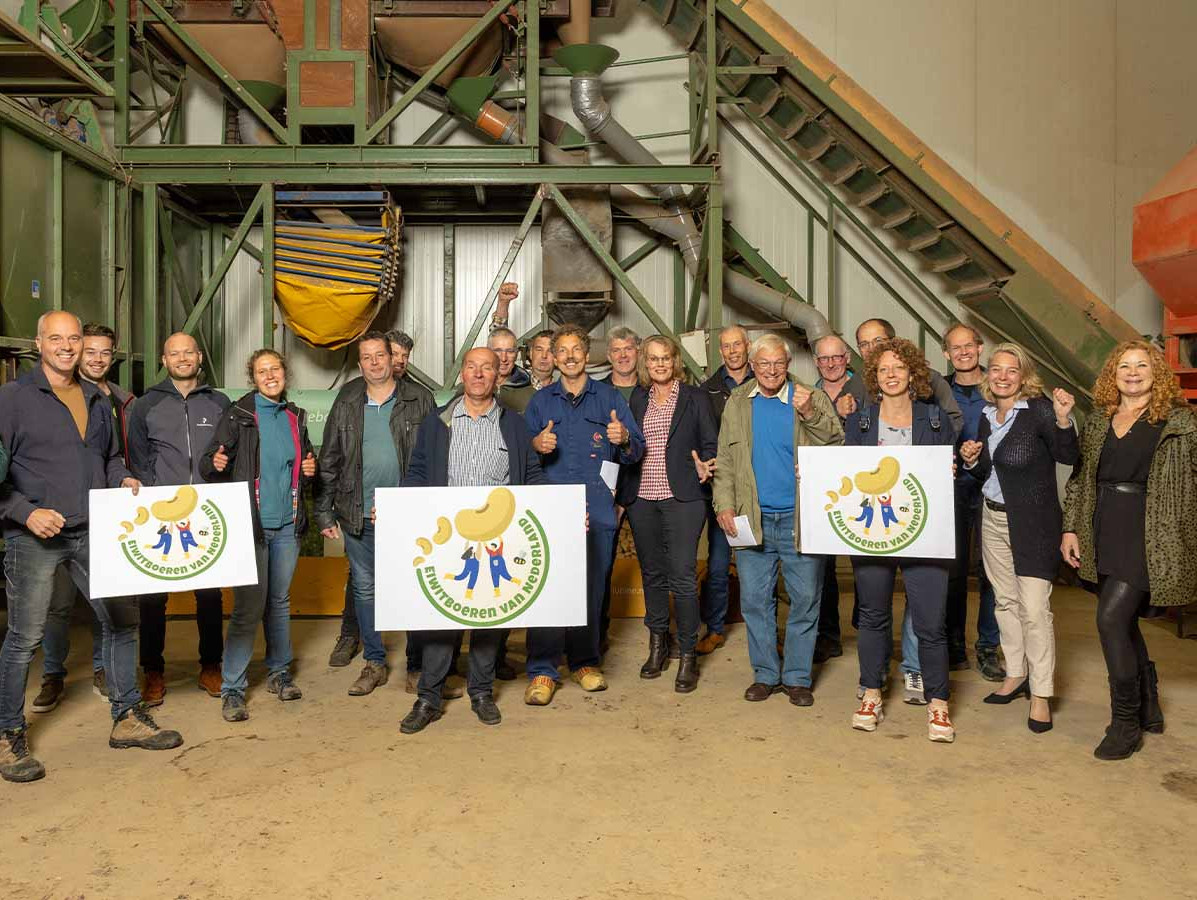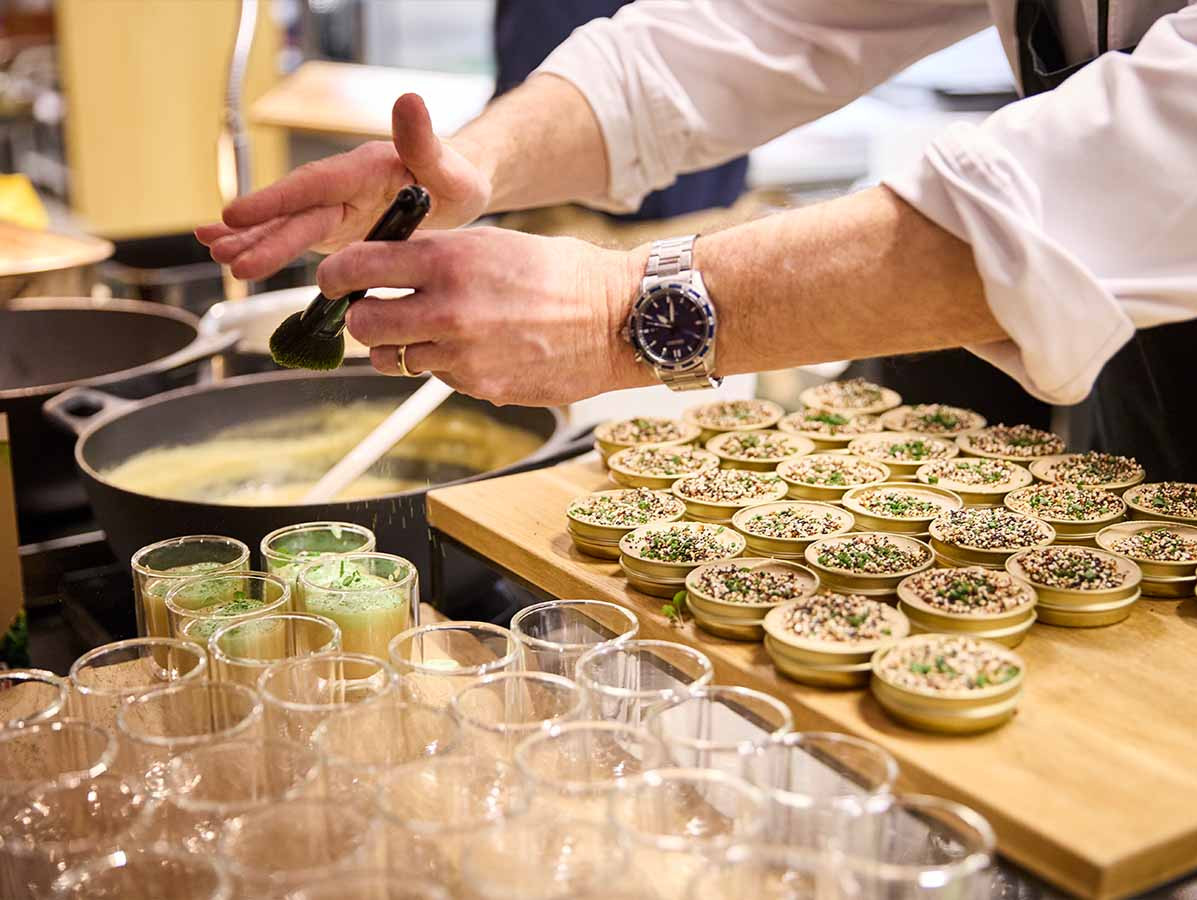
On July 14, 2022, the Bean Deal was signed by 56 parties representing the entire legume supply chain. This number has since grown to 72 organizations. The goal: to put Dutch-grown legumes on the map. But why is this so important? What has been achieved after two years, and what still needs to be done?
“The primary goal of the Bean Deal is to scale up the cultivation and processing of protein-rich crops in the Netherlands, specifically for human consumption,” explains Sonja Zuijdgeest, supply chain manager of the Bean Deal. “Plant-based protein in our food is becoming increasingly important, and cultivation within the Netherlands is crucial for our farmland, farmers, and nature.”
The Bean Deal is part of the National Protein Strategy (NES), a 2020 action plan from the Ministry of Agriculture, Nature, and Food Quality (now LNNV), aimed at increasing the self-sufficiency of the Netherlands and the European Union in terms of protein. “The underlying goal is to shift the balance between animal and plant proteins in our diet from 60-40% to 40-60%. To achieve this, fundamental changes are needed across the entire food chain, from cultivation and processing to the consumption of proteins.”
“The cultivation of legumes is important for soil fertility. Legumes are effective nitrogen-fixers, which helps reduce CO2 emissions, improves soil quality, supports biodiversity, and boosts crop yields. Farmers like to grow these crops as part of their rotation. However, cultivation isn’t yet financially viable; yields don’t bring in enough. This is partly due to lagging consumer demand but also because the development of crop varieties, cultivation knowledge, and product development has stagnated.”
To explain this bottleneck, Sonja refers to the Blair House Agreement. “In 1992, the European Union agreed with the United States to remove EU market protection for the cultivation of protein-rich crops. As a result of international trade agreements, legume cultivation shifted entirely abroad. Now, we need to catch up: cultivation and processing must be scaled up, and for that to happen, consumption must also increase. This brings us to the second goal of the Bean Deal: growing the market for legumes by encouraging their consumption in the Netherlands.”

“The Bean Deal has been signed by 72 passionate partners: agricultural and food companies from the entire food chain, along with NGOs, Rabobank, the World Wildlife Fund, regional governments, the Ministry of LNNV, and research institutions. Together with Wageningen University & Research, the Louis Bolk Institute, and AgriFood Capital, seed and cultivation companies are investing in new varieties and cultivation knowledge. With In-Holland, HAS, and NIZO, food companies are working on the development of new products and technologies. We are also building new supply chains with partners, such as meat substitutes, plant-based dairy products like milk and cheese, modern-style canned goods focused on convenience, taste, packaging, and protein- and fiber-rich ingredients for the bakery sector. With the innovation knowledge and technology present in the Netherlands, we offer the Dutch food industry significant new economic opportunities in a growing sustainable global market.”
“Yes, a new producer organization of legume farmers has been established: ‘Eiwitboeren van Nederland’ (Protein Farmers of the Netherlands, www.eiwitboeren.nl). To raise awareness of plant-based proteins like fava beans, lupine, white beans, kidney beans, soy, and chickpeas grown locally, a new label was launched last year for producers and buyers. This label makes it easier for consumers to make a sustainable, local choice—for the farmer, soil, biodiversity, and citizen. Interest from food service, hospitality, and retail is growing, partly due to the new CSRD legislation, to include legumes—preferably locally grown—into their offerings. Legumes are healthy, a key plant-based protein source, and their cultivation offers new entrepreneurial opportunities for our farmers. Chefs also enjoy cooking with legumes, helping the Dutch rediscover beans and create delicious dishes with them.”

“One specific action to stimulate consumer demand is #BEANMEAL: an annual activation week around World Pulses Day on February 10. The first edition of the National Consumer Activation Week for Legumes #BEANMEAL was held this past year: a week during which supermarket chains, caterers, producers, and social organizations across the Netherlands highlighted legumes. Through #BEANMEAL, we provide a platform and a toolkit. The #BEANMEAL partners then tailor the activation to their needs. Supermarkets highlight beans through promotions, in-store and online, supported by producers providing the products. Caterers include beans on menus in various restaurants. The Protein Farmers of the Netherlands organized special Bean Meals on-site. The second edition will take place from February 10 to 16, 2025, and is now organized by the Green Protein Alliance, another Bean Deal participant. Everyone is welcome to join, so sign up through the website Beanmeal.nl. We work closely together to maximize impact.”
“The true story of the legume and its importance for Dutch agriculture needs to be highlighted much more,” Sonja insists. Her message to food processors: choose more sourcing from Dutch farmers, whether as whole beans or as ingredients in plant-based alternatives to animal protein. “Farmers need future-proof prices for their crops. Help them scale up by making long-term agreements, sharing risks, or investing in knowledge and innovation around breeding and product processing. You can also involve farmers as ‘living labs’ in your product development.”
After next year, participants hope to continue with a ‘Bean Deal 2.0’. “There is still much work to be done,” Sonja emphasizes. “We’ve already started the first explorations: ambitions and goals, focus, participants and leaders, funding, and feasibility. Our key challenge now is that everyone wants to continue, and this requires resources as well.” With confidence: “With the ambitions and energy we all have, we’ll definitely succeed!”
Caption main photo: Sonja Zuijdgeest
Photos: ©David Jagersma
Source: Vakblad Voedingsindustrie 2024